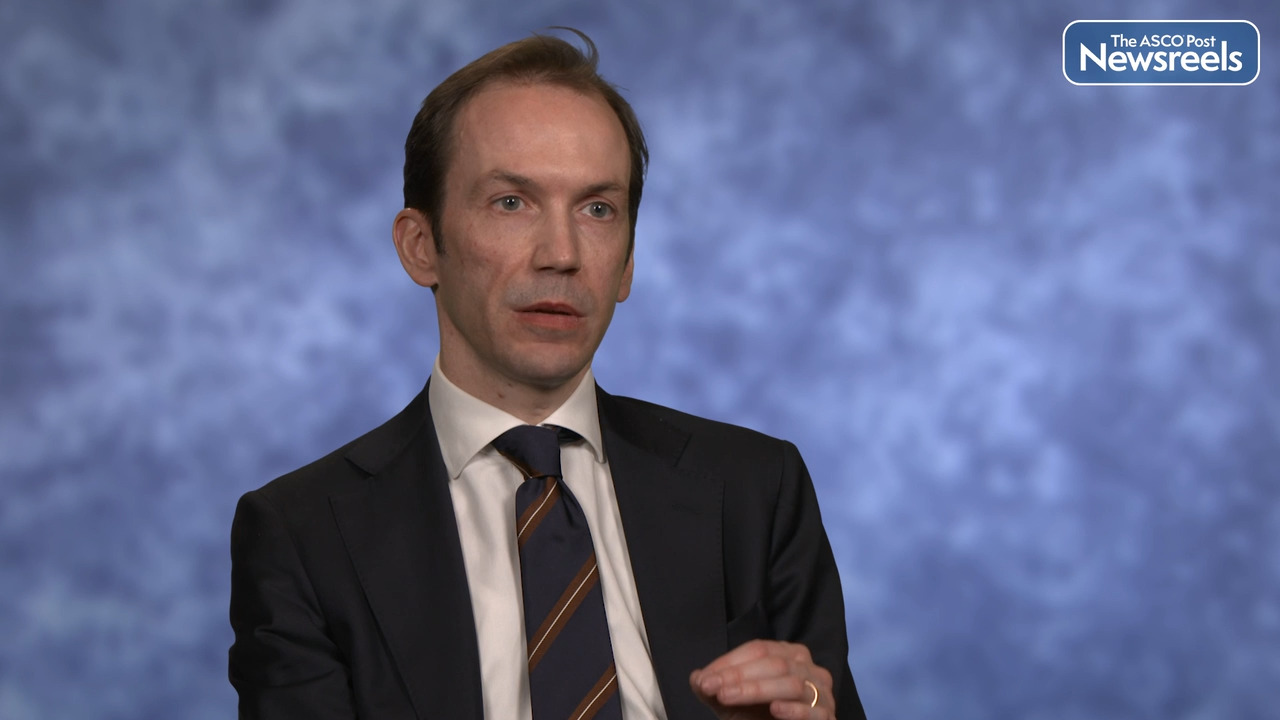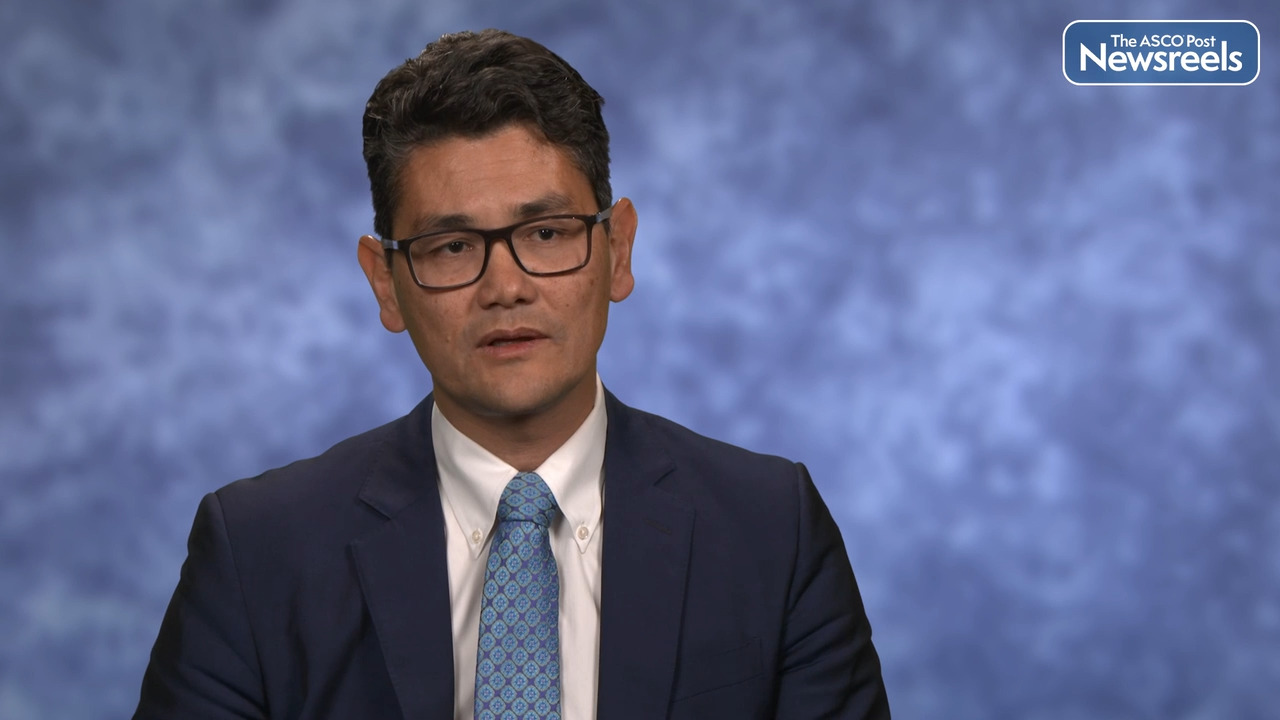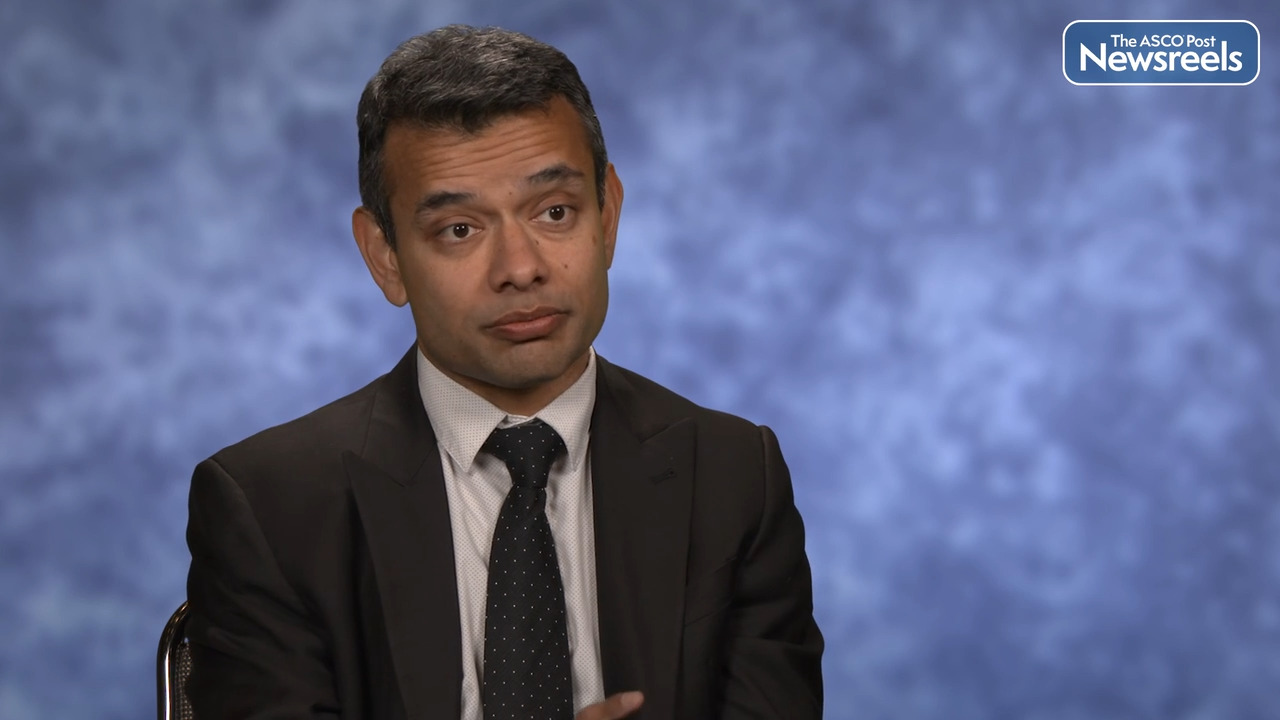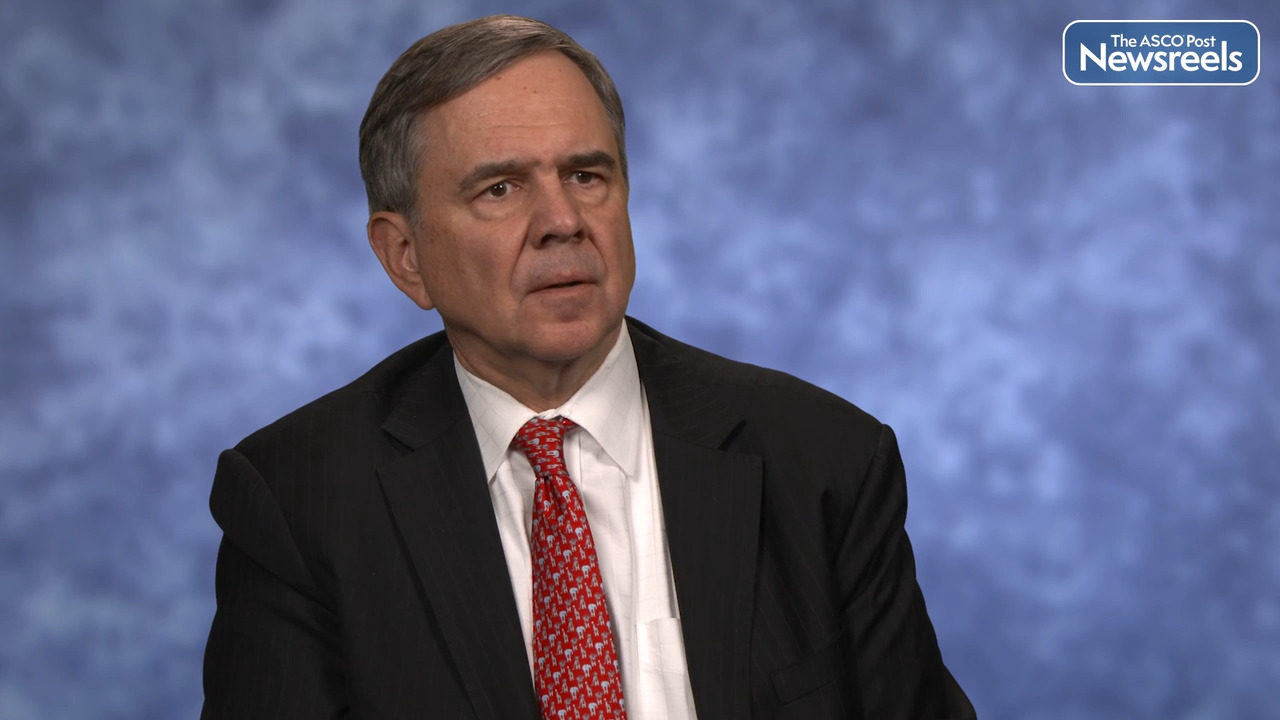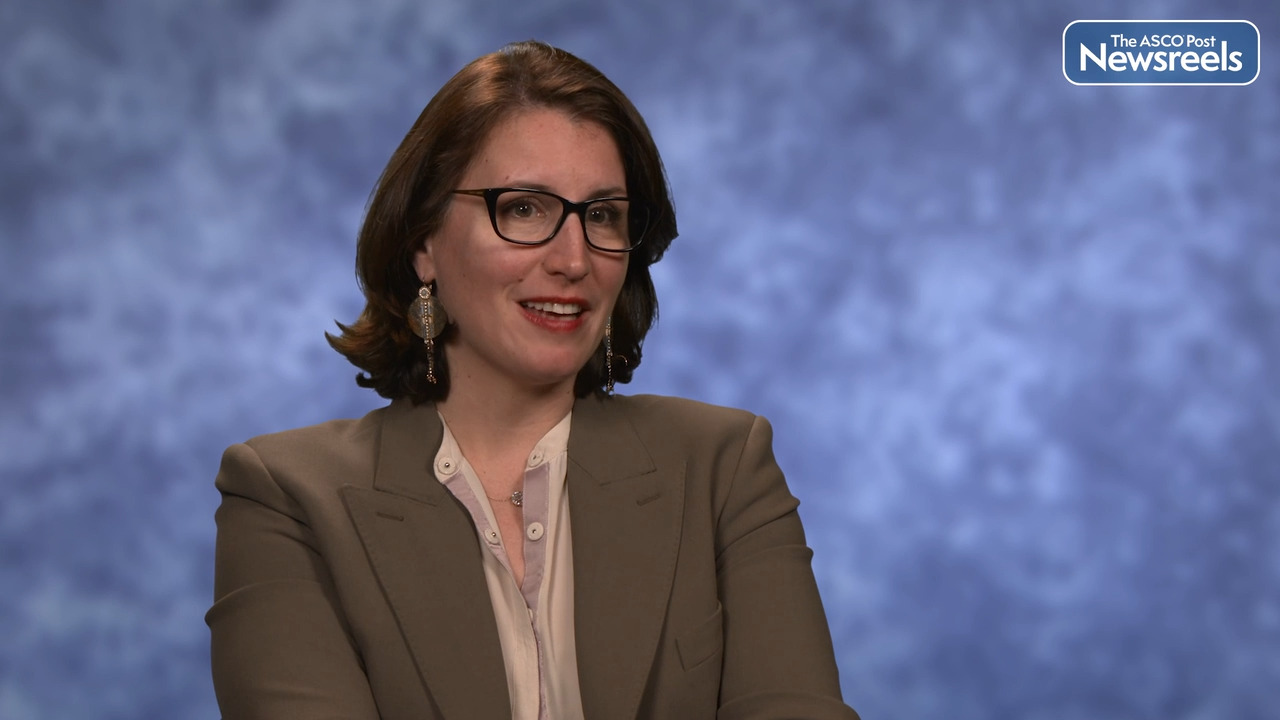Matt D. Galsky, MD, on Bladder or Upper Urinary Tract Cancer: Extended Follow-up Results From CheckMate 274
2023 ASCO Genitourinary Cancers Symposium
Matt D. Galsky, MD, of the Icahn School of Medicine at Mount Sinai and Tisch Cancer Institute, discusses results from CheckMate 274, which investigated nivolumab compared with placebo in patients with bladder or upper urinary tract cancer, following radical surgery to remove invasive disease. (Abstract LBA443).
Transcript
Disclaimer: This video transcript has not been proofread or edited and may contain errors.
Patients with muscle invasive urothelial cancer of the bladder or upper urinary tract can be at high risk for metastatic recurrence, local or metastatic recurrence after surgery. Patients at high risk can be identified based on pathological stage criteria. So, patients who have received neoadjuvant chemotherapy, if there's T2 or higher disease in the surgical specimen are at high risk. And patients who haven't received neoadjuvant chemotherapy have T3 or higher disease in their surgical specimen and are cisplatin ineligible are at high risk for metastatic recurrence. Historically, there hasn't been adjuvant treatment to apply to either of those situations to mitigate that risk.
When immune checkpoint inhibitors, PD-1 and PD-L1 inhibitors were shown to be beneficial in metastatic urothelial cancer, of course, the logical question was, can we move these treatments earlier into the perioperative setting? And so, CheckMate 274 was designed to test whether or not adjuvant immune checkpoint blockade with nivolumab could improve outcomes compared to placebo in those two unmet need populations that I described. The study was a phase three study, enrolled patients with muscle invasive urothelial cancer at high risk for recurrence after radical surgery. Patients were randomized to nivolumab for up to a year versus placebo.
The co-primary endpoints were disease-free survival in the intent to treat population and disease-free survival in patients with tumor PD-L1 expression greater than or equal to 1%. The initial report of the study revealed that the study met its co-primary endpoints that led to the approval of adjuvant nivolumab in the United States, and that was with a minimum follow up of 5.9 months. So, now we have three year follow up on the study, a minimum follow up of 31.6 months, demonstrating that the effect of adjuvant nivolumab versus placebo on primary endpoints, secondary endpoints, exploratory endpoints, all has remained remarkably stable. And this is quite important because adjuvant treatment is given for a fixed duration of time, up to a year.
So, demonstrating that the effect is sustained after the treatment is discontinued is certainly important for reinforcing the value of adjuvant nivolumab in clinical practice. Overall survival from the CheckMate 274 study is a secondary endpoint. It's an event-driven analysis and will be assessed at a future database lock. Future directions in the adjuvant space have to do with trying to define patients who most need adjuvant treatment based on detecting microscopic metastatic disease and assays for minimal residual disease, molecular residual disease using circulating tumor DNA certainly represent one tool that could potentially be used to identify patients who benefit or who need, rather, adjuvant therapy. And that concept is now being tested prospectively to establish the clinical utility of CT DNA testing in determining which patients should receive adjuvant immune checkpoint blockade.
The ASCO Post Staff
Andrea Necchi, MD, of Italy’s Vita-Salute San Raffaele University and the IRCCS San Raffaele Hospital and Scientific Institute, discusses new data from the KEYNOTE-057 trial on a novel systemic therapy for papillary high-risk non–muscle-invasive bladder cancer. The findings suggest that patients whose disease does not respond to bacillus Calmette-Guérin or who declined or were ineligible for a radical cystectomy may benefit from pembrolizumab monotherapy. (Abstract LBA442).
The ASCO Post Staff
Alan H. Bryce, MD, of the Mayo Clinic, discusses the final results of the primary endpoint of rPFS and interim results on overall survival among patients with chemotherapy-naive metastatic castration-resistant prostate cancer. The data showed that rucaparib improved radiographic progression-free survival compared with either docetaxel or abiraterone and enzalutamide in disease with BRCA1/2 alterations. (Abstract 18).
The ASCO Post Staff
Sumanta K. Pal, MD, introduces his City of Hope colleagues, Hedyeh Ebrahimi, MD, MPH, who discusses the prevalence of dietary modification and supplement use in patients with metastatic renal cell carcinoma, and Daniela Castro, MSc, who discusses expanding eligibility criteria in kidney, prostate, and urothelial cancer trials to more accurately reflect the real-world population and reducing exclusion criteria. (Abstract 662, 612, 34, 453)
The ASCO Post Staff
Daniel P. Petrylak, MD, of the Yale Cancer Center, discusses a primary phase II analysis of the TROPHY-U-01 study, cohort 2, which evaluated sacituzumab govitecan-hziy in platinum-ineligible patients with metastatic urothelial cancer that progressed after prior checkpoint inhibitor therapy. (Abstract 520).
The ASCO Post Staff
Laurence Albiges, MD, PhD, of France’s Gustave Roussy Cancer Centre, discusses interim results from the CaboPoint study, which evaluated cabozantinib as second-line treatment in patients with unresectable, locally advanced or metastatic renal cell carcinoma with a clear cell component. Disease in the study participants had progressed after prior treatment with ipilimumab and nivolumab in combination or combined with VEGF-targeted therapy. (Abstract 606).
